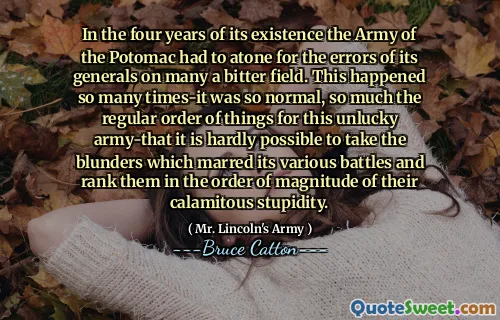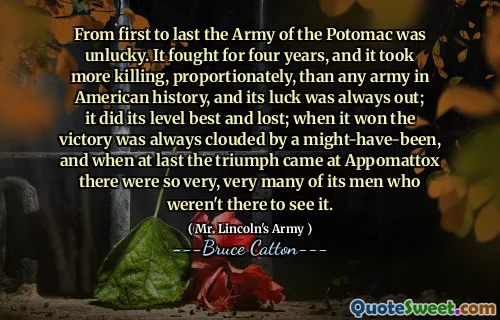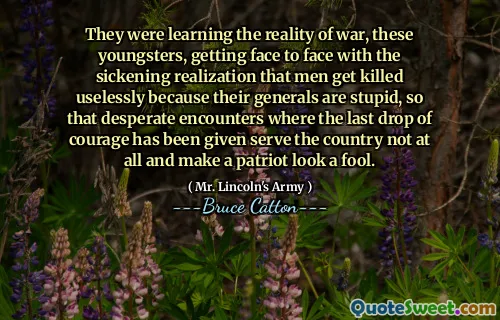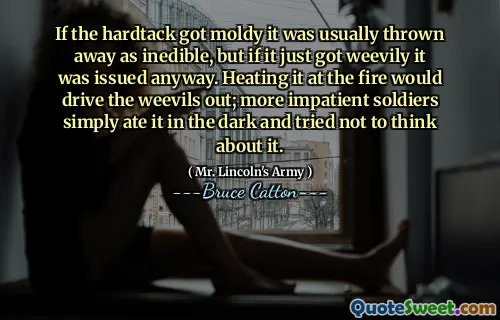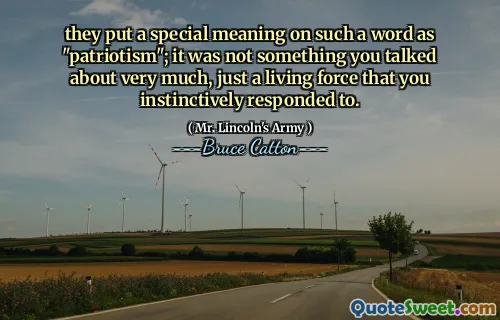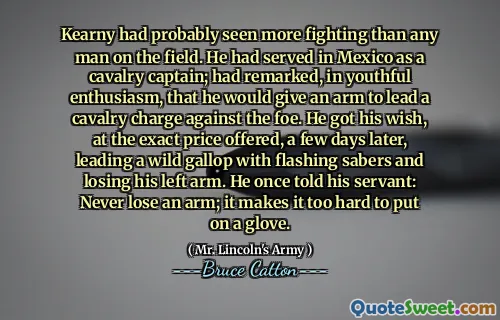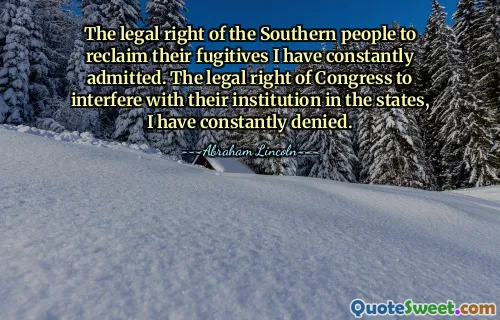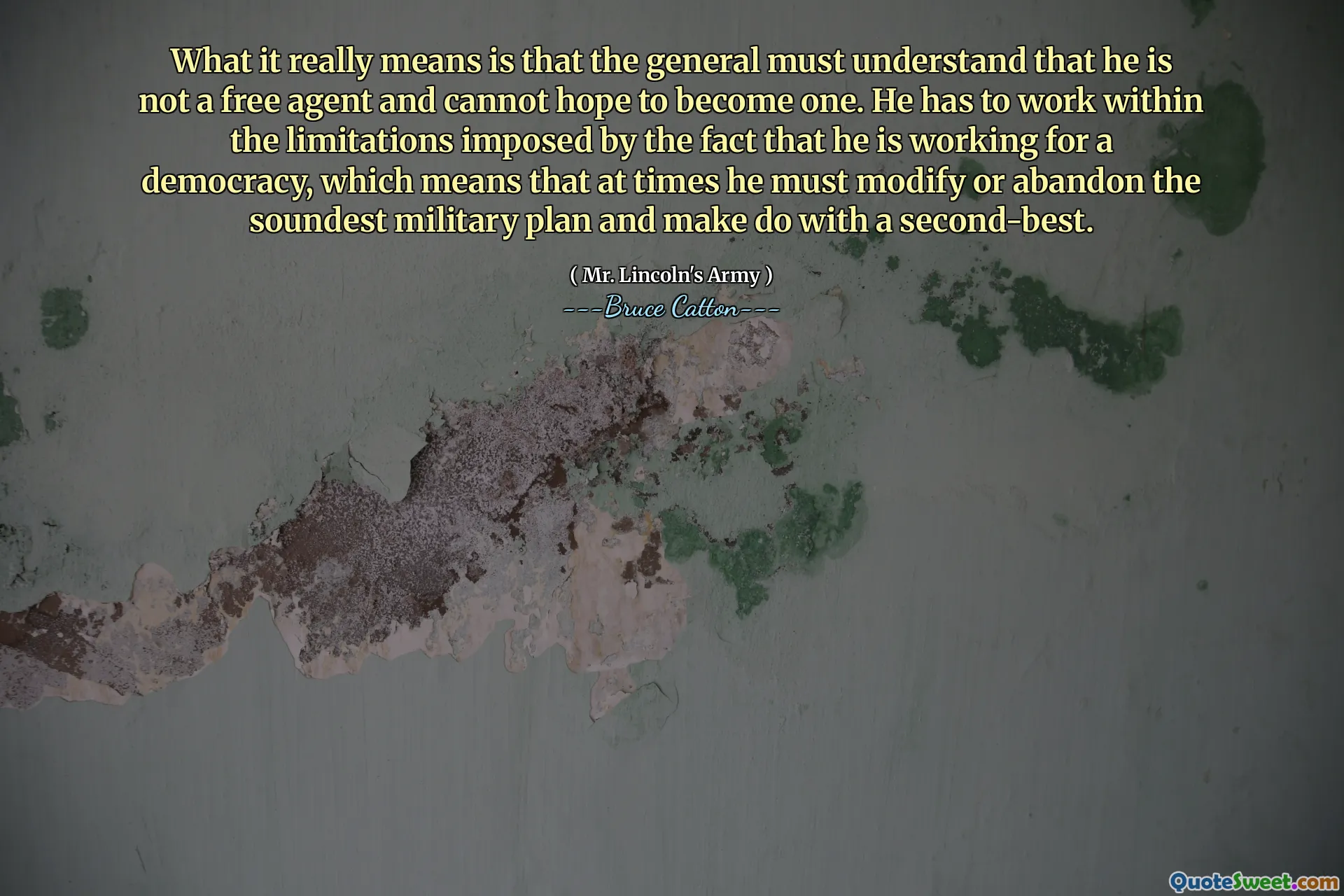
What it really means is that the general must understand that he is not a free agent and cannot hope to become one. He has to work within the limitations imposed by the fact that he is working for a democracy, which means that at times he must modify or abandon the soundest military plan and make do with a second-best.
The quote emphasizes that a general in a democracy faces inherent constraints that limit their autonomy. Unlike in authoritarian regimes, where a military leader might act freely, a general must navigate the political landscape and consider the opinions and interests of civilian leadership. This often requires making compromises and adjusting military strategies to align with democratic values and expectations.
This reality highlights the complex interplay between military strategy and the political environment. A general’s effectiveness may be measured not only by their tactical skills but also by their ability to adapt to the challenges posed by democratic governance, which sometimes means settling for less than the ideal military outcome to maintain political stability and support.
